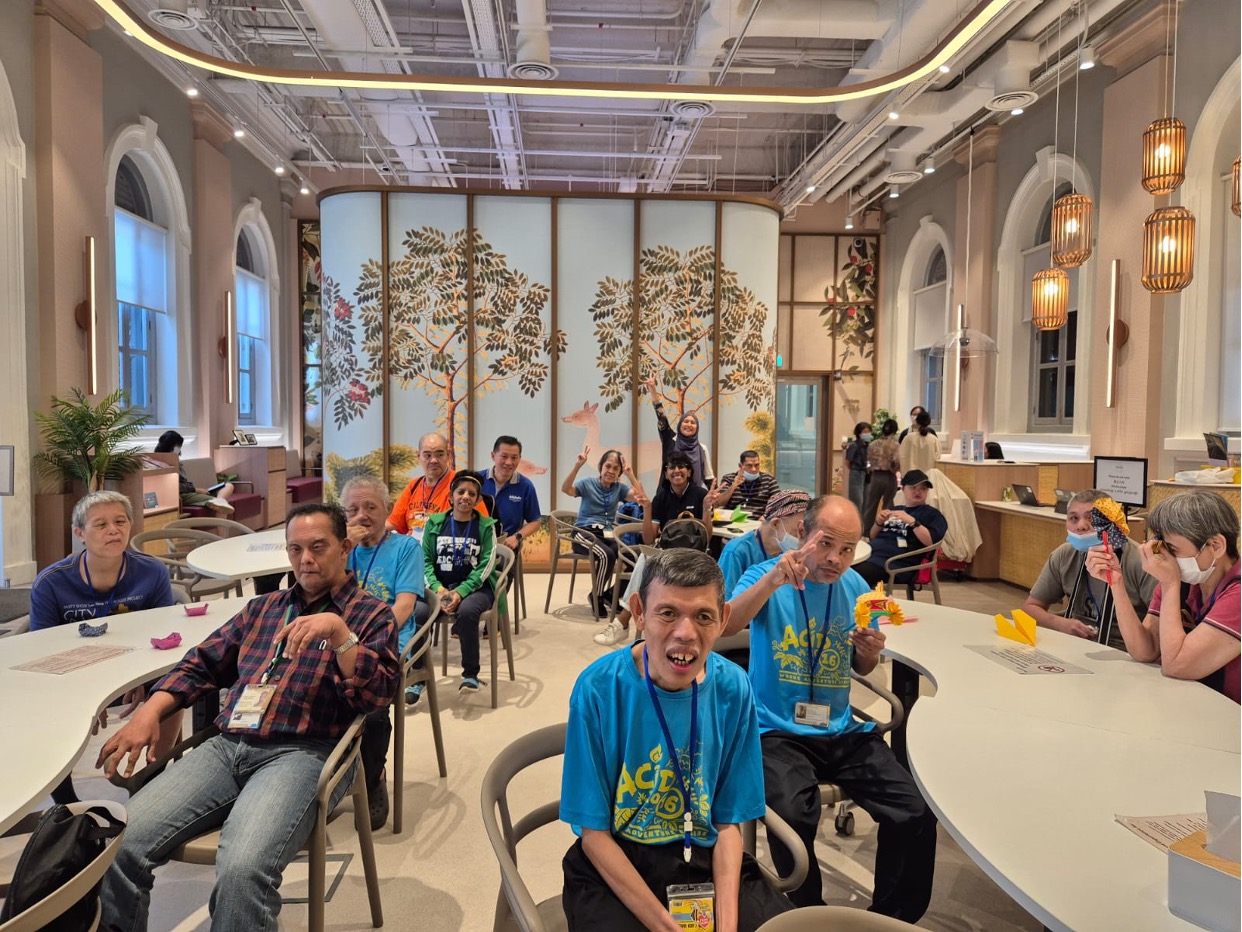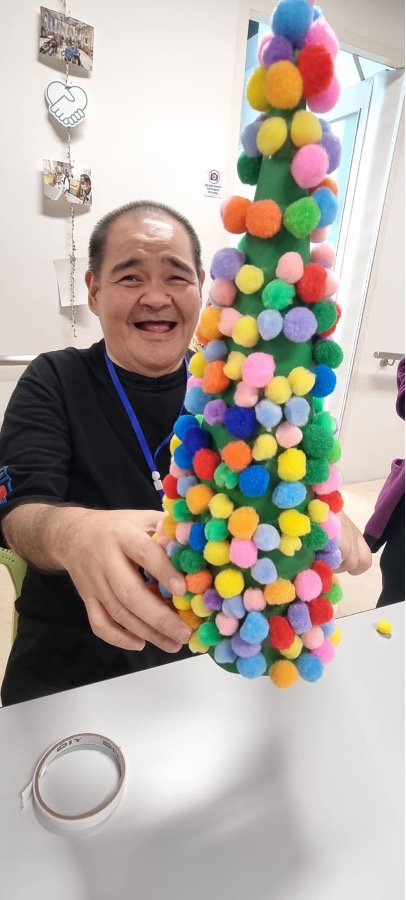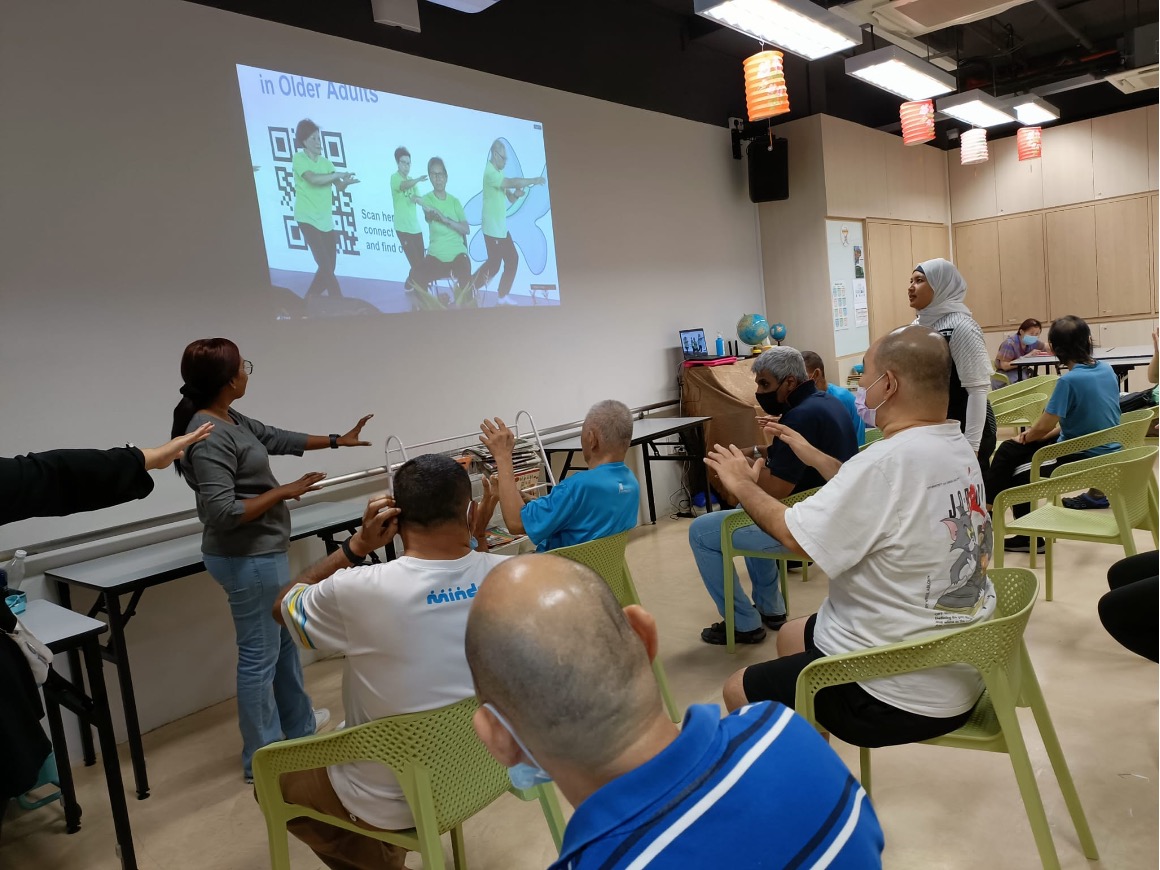New centre in Woodlands targeted to ageing PWIDs
Funded by MINDS and AIC, the centre fills a much-needed gap and helps engage ageing PWIDs.

Clients continue to be trained on their Activities of Daily Living (ADL) skills. On this day, clients prepare a simple meal of bread and spread for tea-break.
On the weekend, a 2,180 sqm space in Woodlands becomes a haven for church goers but come the weekday, this space is quickly turned into a much-needed activity and community rehab centre for persons with intellectual disabilities (PWIDs). Called Oaktree @ Woodlands, the centre also supports PWIDs’ caregivers by providing care planning and coordination.
Funded by non-profit organisation MINDS and the Agency for Integrated Care (AIC), the centre is specially for those 45 years and above, and aims to maintain and/or improve the general, physical and social well-being of ageing PWIDs. The goal of the centre is also to improve its caregivers’ confidence, and open up opportunities for the community to volunteer there, thereby promoting awareness and inclusivity for PWIDs.
The centre, which started in August 2024, is currently helping 25 individuals who come from MINDS’ Central cluster, one of the three clusters that it has, and who might need that “extra help”. They are assessed to show regression of their Activities of Daily Living or ADL skills, physical health and/or work interest in the past six months and then they come to centre, which is open daily for five hours. The programmes and services are currently free to clients and their caregivers.

With the support of the National Museum of Singapore, Oaktree clients get to visit the Reunion Space, a dedicated social space for seniors, to take part in craft activities. They also get a tour of the museum thereafter.
Keeping clients engaged
At the centre, clients participate in the basic health management programme which includes physical exercises and chronic disease checks, and social engagement and cognitive activities, which includes karaoke sessions, games, monthly outings and interest-based workshops. One such outing is a craft session at the National Museum of Singapore’s Reunion Space and a chance to enjoy the space’s music booth, handling objects and the Memory Lane interactive space, as well as a guided gallery walk-through. For caregivers, the centre helps them with individualised goals and future care planning conversations.
MINDS’ Dr Vimallan S/O Manokara, director (Central cluster), said: “Our clients’ caregivers are assured having this centre available. Their loved ones would normally be home and disengaged if not for the centre. When they are engaged productively, it also helps to slow down their progression.”
According to the non-profit, clients at the centre are mostly those with moderate intellectual disability where they possess basic communication and language skills. They are also able to perform simple tasks with repetition and supervision, but require consistent support to master basic self-care and housekeeping skills, explained Dr Manokara.

Client Chin Cheong enjoying craft activities during Christmas celebrations.
Shared a caregiver of one of the clients, Rebecca Cheong, “Ever since my brother [Chin Cheong] started attending Oaktree, he has been looking much more cheerful and less tired. He comes home smiling and in good spirits. He has also become more helpful around the house, willingly assisting with simple chores such as peeling onions and garlic, and taking out the rubbish. Although he still isn’t very enthusiastic about doing exercises, he has been complaining less about leg pain, which is encouraging.
“We are very happy with his participation in Oaktree’s daily activities with the trainer and team, and his friends. It’s a great environment that supports his well-being and helps prepare him for healthy ageing.”
New in the ageing sector
This is a new area for MINDS, which usually targets its programmes to those younger rather than those older. With Oaktree @ Woodlands, it plugs a much-needed gap in the community as people are living longer and have chronic diseases, much like those older adults with intellectual disabilities. A worrying fact is that many PWIDs are far less likely to give voice to these symptoms unlike those without intellectual disabilities. This then further exacerbates their problems.
Dr Manokara added that besides age-related health issues such as high-blood pressure and diabetes, and mental health changes like depression and dementia, PWIDs may experience physiological changes such as decline in mobility and cognitive functioning, and skills regression which may affect their motivation and their ability to perform work or daily activities. As such, they would require support from others to participate in activities, maintain or acquire healthier habits to avoid the effects of a sedentary lifestyle.

At Oaktree, they encourage their clients to participate in physical exercises. Here, clients are enjoying a session.
“The current disability service models do not fully cater to the needs of ageing PWIDs. Furthermore, existing active ageing centres are not designed for PWIDs, particularly those with more support needs,” said Dr Manokara, who said MINDS has plans on having more than just one centre.
It is eyeing to start Oaktree in other MINDS’ clusters such as in the east by March 2026 and the west by March 2027. It is also hoping to expand its pool of existing clients to a total of 40 and are looking to support those who are older with severe intellectual disabilities and employ medical staff as a result.
Dr Manokara explained about more centre openings, “We want our clients to be part of the community. We want to be person-centric, and try to get our services and programmes close to clients’ homes.”
(** PHOTO CREDITS: MINDS)

0 Comments